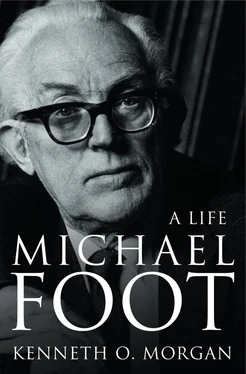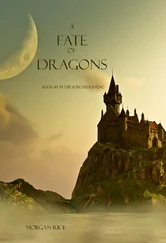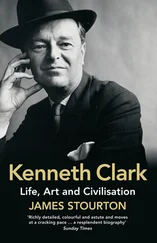Foot’s most characteristic writing came in signed feature articles filling in the historical background to current crises, with themes ranging from Drake’s Drum to the strategic entanglements in the Middle East. Readers of the Standard were treated to learned discourses on the Treaty of Brest-Litovsk in 1918, or even the battles between Carnot’s French Revolutionary army and the Austrians in 1793. He also wrote caustically on the collapse of the Norway campaign in April 1940, comparing it with Gallipoli in the First World War, though taking care not to emphasize the role of Churchill, permanently identified with the Gallipoli disaster, but also widely seen as the only hope of victory now. 57
Foot also found time to produce his first solely-authored book, Armistice 1918–39 , a volume of 274 pages on post-1918 European history published by Harrap, and appearing in March 1940. It came out of a series of sketches of leading political personalities in the press, and the main strength of the book lies in its vignettes of people as varied as the German Communist Rosa Luxemburg, Hitler, Mussolini, Mustafa Kemal, Aristide Briand, Stanley Baldwin, Anthony Eden and Jan Masaryk. The approach is historical, with brief leftish commentary on contemporary issues. The style is brisk and sardonic. The preface gives the reader due warning: ‘No attempt is made at impartiality. Unbiased historians are as insufferable as the people who profess no politics.’ There is comment on the ‘Young England’ MPs like Bob Boothby, Duff Cooper, Oliver Stanley and Victor Cazalet who flocked to back Eden after his resignation as Foreign Secretary in 1938. Baldwin, ‘standing in lonely eminence like a hillock in the Fen country’, is condemned on Churchillian grounds for promoting party over country. 58 Churchill himself is criticized over the Russian Revolution and the General Strike, but is relatively lightly handled. Lloyd George gets off more or less scot free. There is a sketchy conclusion. In general the book is not memorable, though fun to read. Its most striking feature is that, despite his enthusiasm for Rosa Luxemburg, the dogmatic Marxism Foot displayed in the notes to Cripps’s book in 1936 has by now totally disappeared. Stalin’s purges do not escape mention. However ephemeral, the book did confirm that the Standard’s leader-writer had the capacity to write sustained work on his own.
In May 1940 there was a national crisis. In the Commons there came the famous Norway debate of 7–8 May, after which Chamberlain’s discredited regime gave way to Churchill’s all-party coalition. Beaverbrook, as mentioned, became Minister of Aircraft Production a few days later, despite his own decidedly equivocal attitude to the fall of Chamberlain. Foot was present at the Norway debate; indeed he and Frank Owen were, remarkably, put in touch by Beaverbrook with the veteran Lloyd George at this time, to encourage him to help in overthrowing Chamberlain and then to offer his services for the new Churchill administration. 59 But Foot felt the need for a far more direct role than simply being a comfortable journalistic commentator on a war for which others were sacrificing their lives. The architects of appeasement, from Chamberlain and Halifax downwards, were still around, and in key positions in the Cabinet. They must be indicted and removed from power. Since 10 May Foot had been working closely with Frank Owen, a sharp critic of recent military disasters, in penning a series of inspirational leading articles in the Standard to strike a note of defiance. But something much more was needed to shock the national conscience.
There was also another possible colleague, someone that Foot knew less well. This was Peter Howard, previously author of the ‘Cross-bencher’ column in the Sunday Express (with both Isaac and Dingle Foot amongst his previous targets, incidentally). 60 Howard, a handsome former English rugby captain, specialized in the caustic personal portrait. Foot and Owen were quite unaware that he was about to become a leading evangelist for Dr Frank Buchman’s Moral Rearmament. This movement was deeply suspect to all democrats, since Buchman’s pronouncements on current events showed an alarming sympathy for Hitler and indulged in a crude anti-Communism. The author Rose Macaulay observed that ‘the Gestapo was riddled with Buchmanites’. But Howard’s religious inclinations, to which he largely devoted the remaining twenty-five years of his life, were not yet known. The three men met in the Standard offices on the night of 31 May. Foot had heard first-hand evidence of mismanagement by the high command from survivors of the mass evacuation of British servicemen from Dunkirk. Something decisive was urgently needed to galvanize public opinion into realizing how incompetent and morally indefensible the conduct of affairs had been for years past, how essential it was to give mass support to the new Churchill government, above all to spell out the atrocious record of the politicians responsible for past errors, and send them packing. Following some convivial sessions in the Café Royal, the three Express group journalists thus hit on the idea of writing an instant book. 61 The precise contents and shape would be left to serendipity and spontaneous combustion. Michael Foot was the main inspiration.
It was he who won the agreement of his old bête noire Victor Gollancz to take it on for immediate publication, he who enlisted Ralph Pinker as literary agent (a disastrous choice, as events proved). Most important, it was Foot who provided a title, in a meeting with his friends in the Two Brewers in the Gray’s Inn Road. Still deep in his reading on the French Revolution, he recalled a popular demonstration at the Convention Assembly in 1793. Those present demanded, they told the convention, ‘a dozen guilty men’. That, Foot believed, was what the British people demanded now, and Guilty Men is the title the book was given.
Since leaving Oxford, Foot’s career had been as haphazard as that of many intelligent young men unclear about their future. The relationship with Cripps, the abortive crusading for the Socialist League and writing for Tribune had been bruising affairs. He had a record of association with some flamboyant failures. His writings were not yet significant. His flight from Liberalism had as yet little positive to show. The most important by-product was a series of strong personal relationships, important as he grew to maturity, with Cripps, Barbara Betts, Aneurin Bevan, Frank Owen, and of course Beaverbrook. At each stage of his life, starting with his father and Lloyd George, Foot seemed to find comfort in worshipping a messiah, a hero-figure, as a supreme point of reference, just as he did in his reading of literature. His psychology appeared to require one. He had unexpectedly lurched into a significant post at the Standard and was for the first time well paid. He had enjoyed an extrovert lifestyle and had lively friends of both sexes which allowed an intense, almost donnish, personality to blossom. But there had been no clear direction or design hitherto to harness his undoubted talents, no big idea to impress a nation enduring a crisis of survival. Now, with Owen and Howard to help, Foot sensed the prospects of a personal statement of a new kind. It would be deeply controversial to denounce government ministers at a time of total war. It might be disastrously counter-productive. But in 1711 such a venture had been a triumph for his and Isaac’s literary icon Jonathan Swift. True, Swift was trying to stop a war and drive a Churchill (Marlborough) out of power, whereas for his admirer in 1940 the purpose was the exact opposite. Still, for him too it could be his finest hour.
3 PURSUING GUILTY MEN (1940–1945)
Читать дальше












